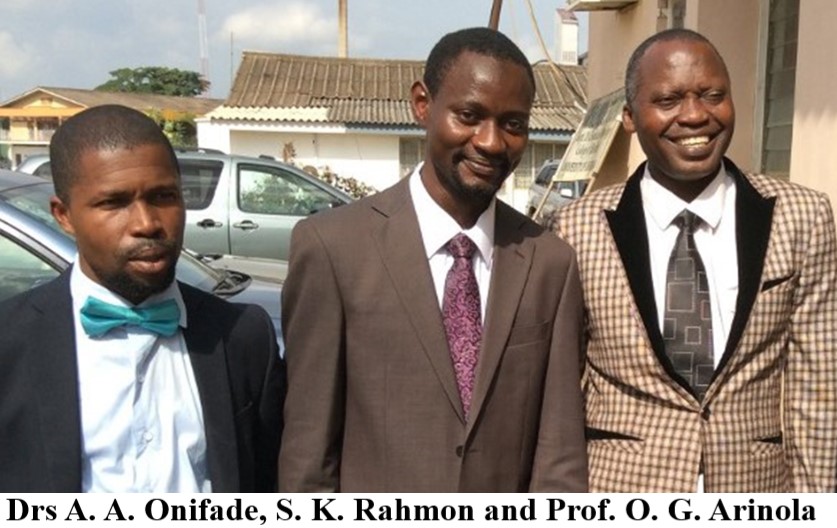Summary
There is little available information on how Nigerians who were exposed to SARS-CoV-2 and those who were vaccinated against SARS-CoV-2 responded by producing appropriate protective proteins (antibodies). We also do not know whether age or gender affects the response. We carried out this novel research with a goal of determining the possibility of achieving community protection (herd immunity) against the small microbe causing COVID - 19 and if community studies on the protective response (sero-epidemiological survey) could strengthen immunization policies in Niegria.
In this study, we evaluated the presence of two protective proteins (IgM and IgG) in the blood samples of the people participating in the research using a cheap and easy-to-use kit that gives results within a few minutes. This novel approach did not require so much expertise, electricity, medical equipment, and laboratory space and is very appropriate for resource- limited countries settings as we have in Nigeria and many other African countries.
Our findings revealed that many participants who did not show any symptoms of SARS-CoV-2 infection and who had not been vaccinated did have the protective proteins in their body. This implied that may more people than estimated may have been exposed to the COVID - 19 virus. Also, majority of those who were vaccinated responded by producing the protective proteins, indicating that community protection (herd immunity) could be achieved. However, few people had no evidence of producing the protective proteins even, after the second dose of vaccines. Furthermore, age and gender did not significantly affect the production of the protective proteins.
The lessons we learn from this study include that the determination of the protective proteins in the blood o people (via sero-epidemiological studies) better reflects exposure to the SARS-CoV-2 infection. It is also important to identify individuals who have produced protective proteins against an infection even before vaccination. This will help us to optimize available vaccines as those who have no protective proteins could be vaccinated first, before those who have produced the protective proteins through natural exposure. Finally, vaccinated individuals need to determine the levels of the protective proteins so as to be sure that they are indeed, protected.
Brief Biosketches of the Study Leads

Dr A. A. Onifade, MB;BS (Ilorin), M.Sc., Ph.D. (UK)
Dr Onifade’s research focus is on immunology of infectious diseases with emphasis on bacterial and viral infections. His research is solution driven as he is passionate about getting cheap and effective therapeutic agents to some infectious diseases. In 2017, Dr Onifade had the privilege of being seconded by the College of Medicine, University of Ibadan to the National Institute of Medical Research (NIMR), Lagos State to continue his evaluation of the anti-viral properties of an herbal preparation; alpha-zam. He has over 50 publications in peer reviewed journals. He is a member of the Nigerian Society for Immunology, British Society for Immunology and Nigerian Medical Association.
Dr S. K. Rahamon, B.Sc. (Ilorin), M.Sc., Ph.D. (Ibadan)
Dr Rahamon’s research focus is on Immunometabolism and psychoneuroimmunology. He has recently, completed five (5) research while four (4) are ongoing. In 2022, he won the University of Ibadan Medical Education Partnership Initiative Junior Faculty (UI-MEPI-J) Grant awarded by the Fogarty International Centre, National Institute of Health, USA to investigate the synergistic roles of HIV persistence and gut dysbiosis in the development of neurocognitive disorders in patients on long-term anti-retroviral therapy. Also, in 2002, he was a Visiting Scholar to the Robert J. Havey Institute for Global Health, Feinberg School of Medicine, Northwestern University, Chicago, USA. Dr. Rahamon has over 50 publications in reputable peer reviewed journals. He is a member of the Nigerian Society for Immunology, British Society for Immunology, Psychoneuroimmunology Research Society, and the Editorial Manager, Nigerian Journal of Immunology.
Prof. O. G. Arinola, B.Sc. (P/H), M.Sc., Ph.D. (Ibadan)
Prof. Arinola is an Immunologist with specific expertise in human studies. He has vast research experience in both communicable and non-communicable diseases. Presently, he is actively involved in a number of research investigating the interplay between genetics, nutritional status, exposure to indoor air pollution, cognition, and immune responses. He was, and still a PI or co-Investigator on several University-, EU- and NIH-funded grants. He has over 250 publications in peer reviewed journals and several chapters in textbooks. He is the current President of the Nigerian Society for Immunology.
Please read the full - length article at: https://doi.org/10.1371/journal.pone.0280276
Newscast Series from the College of Medicine, University of Ibadan (CoMUI),
Translational Research & Community Impact Committee (TRaCC) 0009

